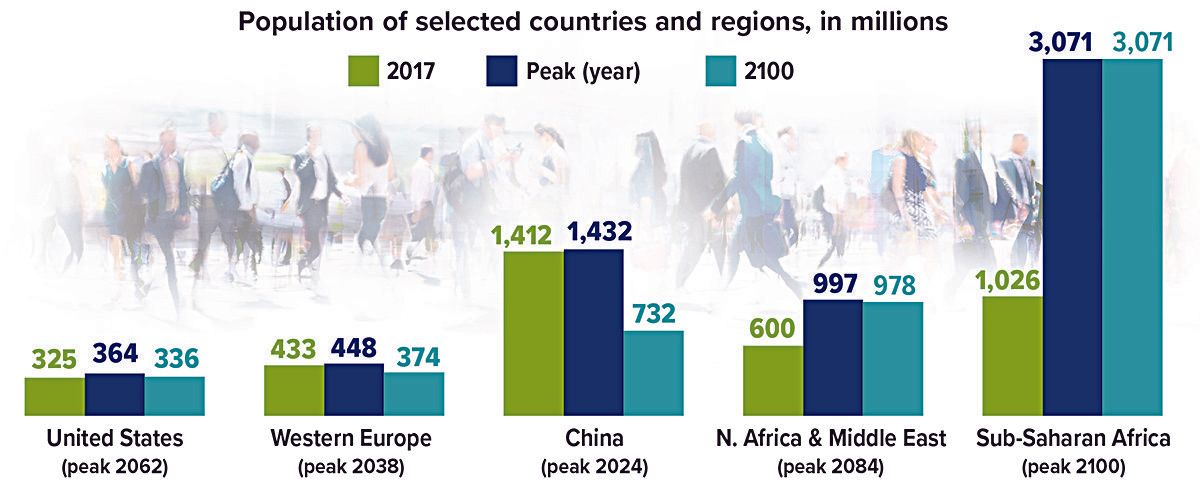Population Peaks
Global population is projected to peak at 9.7 billion in 2064 and decline to 8.8 billion by the end of the century, according to a study from the University of Washington Institute for Health Metrics and Evaluation.
The reversal of population growth — already in progress in some countries — is due primarily to women's better access to education and contraception.
By 2100, 183 of 195 countries will not have fertility rates necessary to maintain their current populations, with 23 countries shrinking by more than 50%. By contrast, the population of sub-Saharan Africa is projected to triple, and almost half the world's population will live in Africa and the Middle East.
All Securities Through Money Concepts Capital Corp., Member FINRA / SIPC
11440 North Jog Road, Palm Beach Gardens, FL 33418 Phone: 561.472.2000
Copyright 2010 Money Concepts International Inc.
Investments are not FDIC or NCUA Insured
May Lose Value - No Bank or Credit Union Guarantee
This communication is strictly intended for individuals residing in the state(s) of MI. No offers may be made or accepted from any resident outside the specific states referenced.
Prepared by Broadridge Advisor Solutions Copyright 2020.













